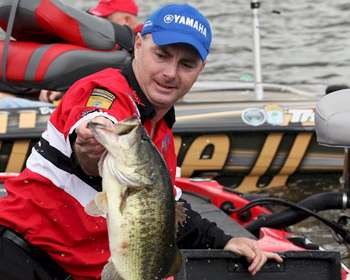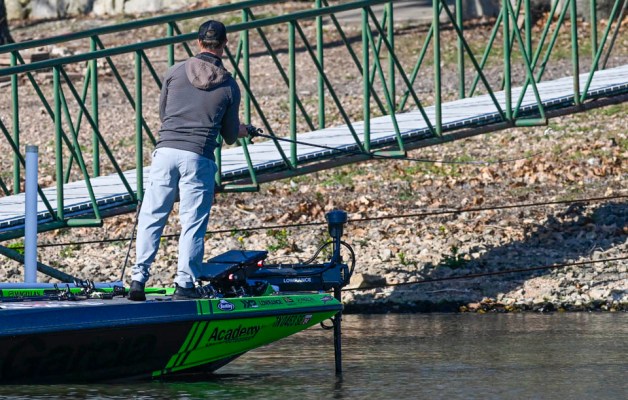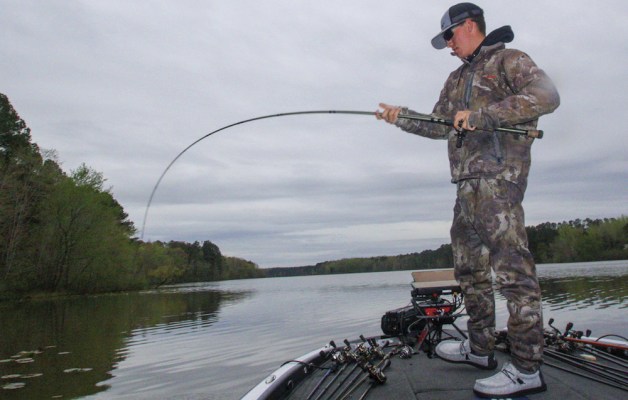
Whether you're a once-a-week bass angler or a full-time touring pro, there never seems to be enough time on the water to get everything done. The end of the day comes and you wish you had time for just a few more casts. But wishing doesn't make the clock move slower.
The secret to getting in those extra casts is time management, says veteran Kentucky pro Mark Menendez. Making the most of his time on the water is an iterative process that he constantly scrutinizes and refines. If he doesn't make the most of his day, he doesn't get the top finishes he needs to keep going, and time is at a premium.
"I've got nine hours; that's it," Menendez says. "One tournament this year, I ran 90 miles one way, made a lock and I ended up running for almost four hours of my day. I had less than four hours of fishing time once I got there.
I had to be precise. I had to have sharp hooks. I had to know exactly where to go." For Menendez, the secret is controlling all the variables he can. For example, he makes certain his boat's batteries and electrical systems are operating at peak efficiency. "To have a good, pleasant day, regular maintenance is key," Menendez says. "That means primarily dealing with your batteries and your connections. Always make sure they're tight. Always make sure that they're clean.
Don't wait two or three or four days after fishing to recharge your batteries. Recharge them immediately after fishing. That'll help your overall efficiency." But the batteries to run your trolling motor and accessories won't help one bit if your outboard doesn't get you to the fish. "Outboard maintenance is also key," Menendez continues.
"Change your lower unit grease once a year, twice a year if you fish a lot. And be sure to use premium grade oils." Assuming your equipment is mechanically sound, you still have to find the fish, and Menendez uses the long drives between tournaments to start thinking about seasonal patterns and what can be presumptively eliminated. Once he's on the water and starts to develop a game plan, he also thinks about how to order his stops during the day.
"I try to make a milk run and have it planned to hit everything in a logical order," he says. "That saves gas and it saves time." Once he's in his key areas, not only does he want to make as many presentations as necessary, but he wants each one to be perfect. To accomplish that strategy, he recommends using the same gear for all of your techniques to avoid wasted casts.
"One easy thing you can do is have matching equipment," he says. "Have all the same brand rods and reels. If you're constantly picking up a rod that has a completely different feel from the one you just put down, it takes two or three casts to get comfortable again. Using the same rods and reels means you'll be ready to make a good first cast, get a bite and get that fish to the boat."
He also recommends paying close attention to terminal tackle, matching each item to the task before you ever get to your fishing spot. Using the perfect hook can increase your hookup percentage as much as 20 to 30 percent. "Knowing what hook to use on soft plastics is an absolute must," Menendez says. "I see a lot of my co-anglers use the absolute wrong hook for a given technique.
"If you're flipping and pitching soft plastics, always use a round bend, straight shank hook. When you set the hook, the hook will go straight up into the fish's mouth instead of having to turn and then go up. If you're using a soft jerkbait, or you're Carolina rigging, a wide gap is okay. I see a lot of guys use wide gap hooks when flipping and pitching, and that is going to reduce your catches." Those hooks, as well as the rest of your tackle, should be in predictable spots within your boat's storage compartments, so that when you need a particular lure, he explains, "You know where to find a 1/2-ounce Strike King spinnerbait or a Red Eye Shad. You don't have to look in several compartments, which means more casts by the end of the day."
If all variables were controllable, then fishing would be much more predictable and probably much less exciting. But even if you control every variable that is within your power, some things will always still go wrong. Don't compound those problems by dwelling on them.
"When something goes wrong, let it go," Menendez recommends. "If it's something that's out of your control, like the weather, then accept the fact, and it will be easier to bounce back."
(Provided by Z3 Media)





